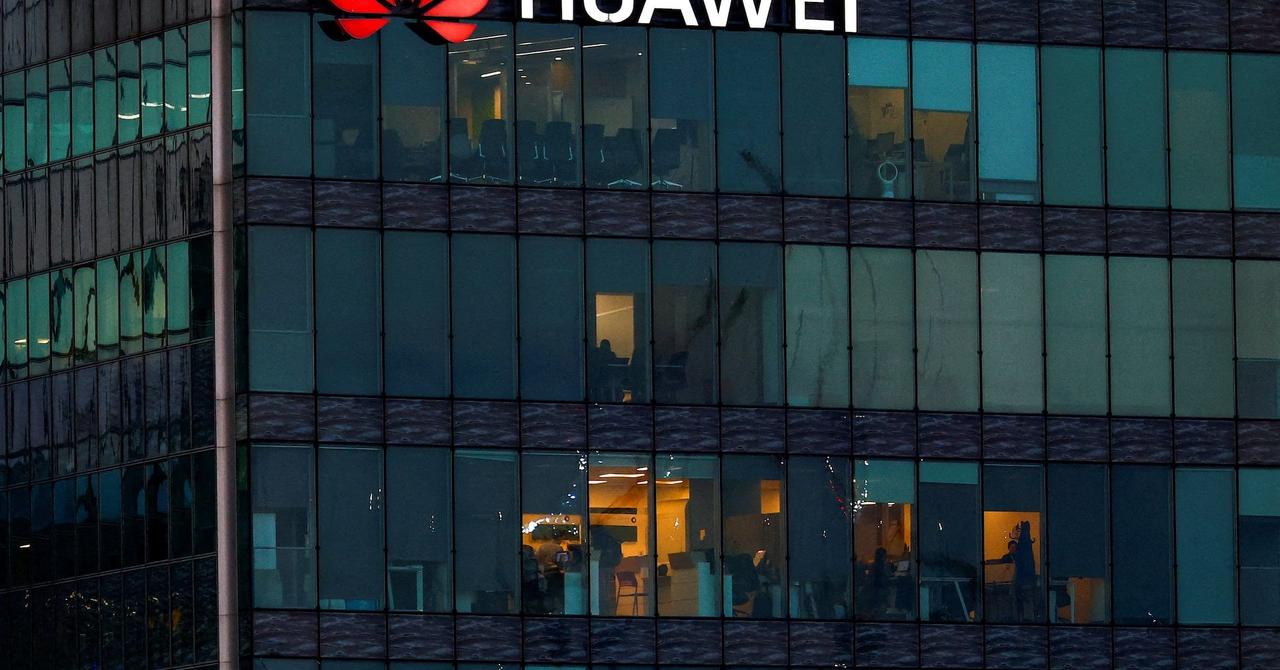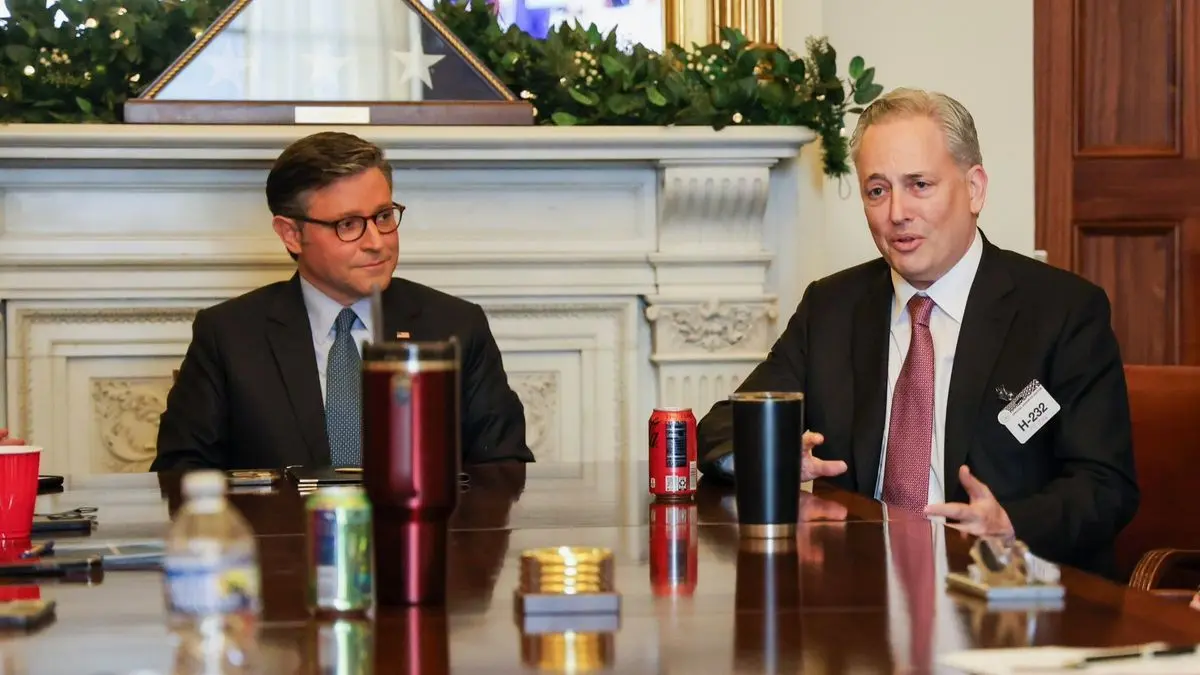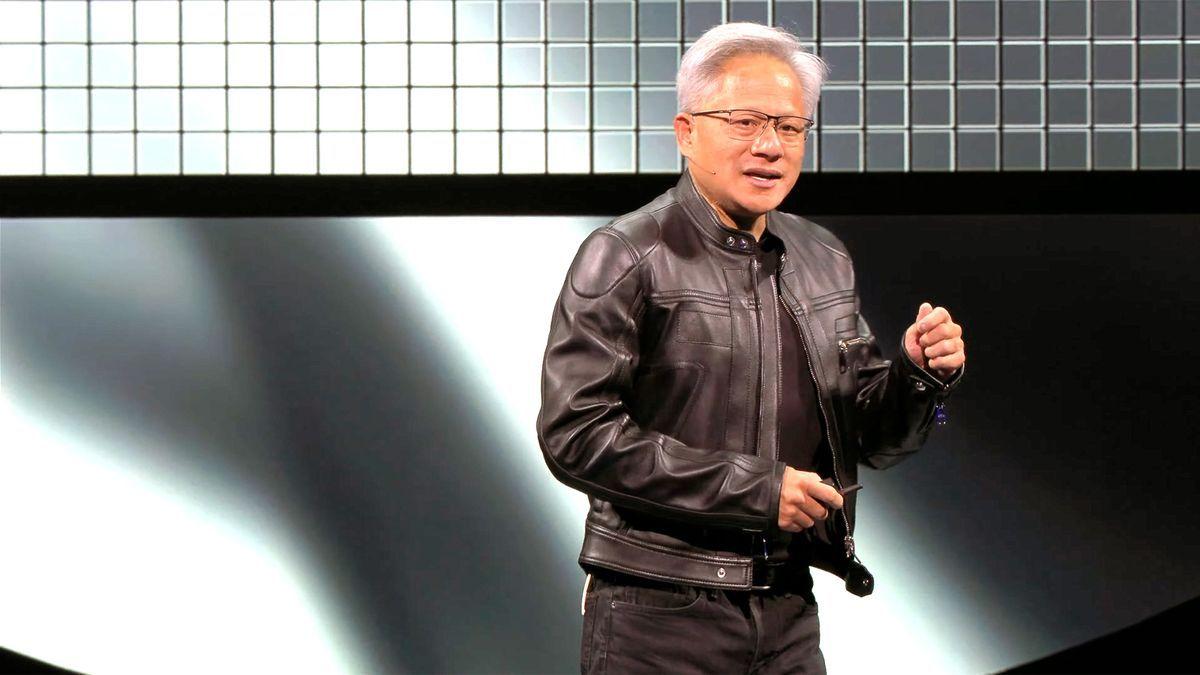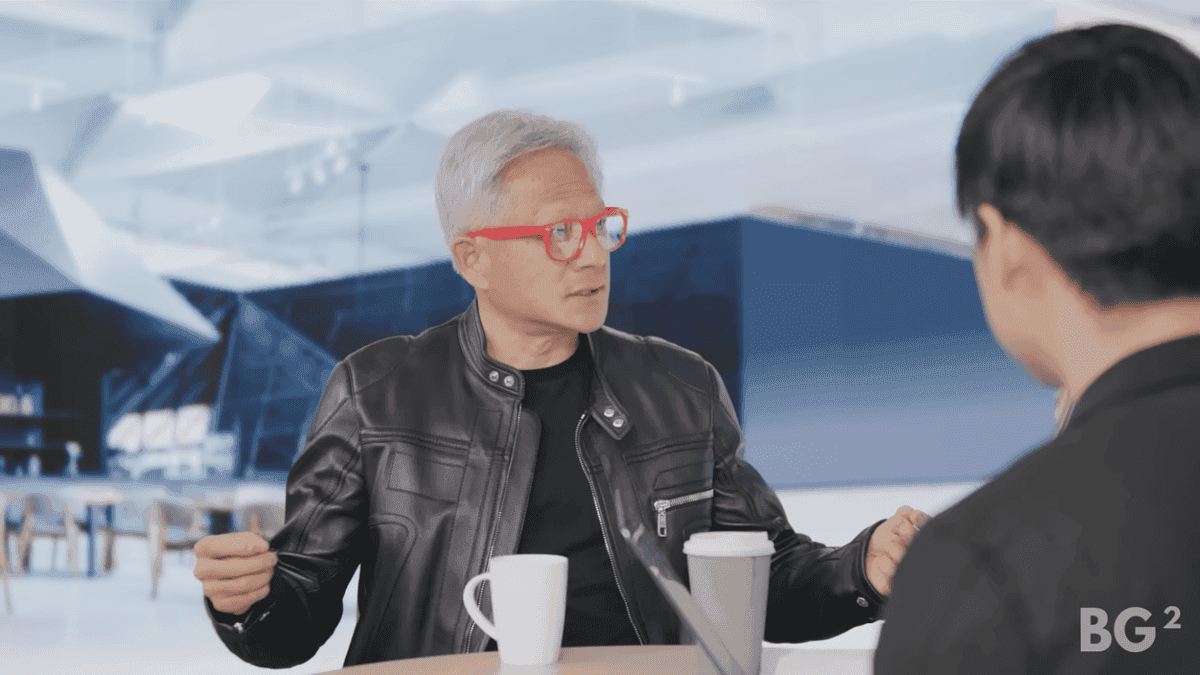US Projects Limited AI Chip Production by Huawei, Warns of China's Rapid Advancements
4 Sources
4 Sources
[1]
US Says Huawei's 2025 Output Is No More Than 200,000 AI Chips
A senior Trump administration official projected that Huawei Technologies Co.'s output of its Ascend AI chip will be at or below 200,000 for 2025, responding to US lawmakers' concerns that China is gaining ground in production of advanced semiconductors. "It's critical for us not to have a false sense of security, to understand that China is catching up quickly, but that is our projection for this year," said Commerce Under Secretary Jeffrey Kessler, who oversees the agency's export control programs. "We shouldn't take too much comfort in the fact that China's production of these advanced chips is relatively small, because we know they have global ambitions."
[2]
US says China's Huawei can't make more than 200,000 AI chips in 2025
WASHINGTON, June 12 (Reuters) - China's Huawei Technologies [RIC:RIC:HWT.UL] is capable of producing no more than 200,000 advanced artificial intelligence chips in 2025, a top U.S. exports controls official told lawmakers on Thursday, warning that though the number is below the company's demand, China is quickly catching up to U.S. capabilities. Since 2019, a slew of U.S. export rules aimed at curbing China's technological and military advancements have limited access by Huawei and other Chinese firms to high-end U.S. chips and the equipment needed to produce them. The issue has become a flashpoint in U.S.-China relations. Facing those restrictions, Huawei aims to ship its Ascend 910C AI chips to Chinese customers as an alternative to those made by the United States' Nvidia (NVDA.O), opens new tab, the global leader. "Our assessment is that Huawei Ascend chip production capacity for 2025 will be at or below 200,000 and we project that most or all of that will be delivered to companies within China," Jeffrey Kessler, Under Secretary of Commerce for Industry and Security at the Commerce Department, told a congressional hearing. Kessler said that the U.S. should not take comfort in the figure. "China is investing huge amounts to increase its AI chip production, as well as the capabilities of the chips that it produces. So, it's critical for us not to have a false sense of security, to understand that China is catching up quickly," he told the House of Representatives Foreign Affairs South and Central Asia subcommittee. White House AI Czar David Sacks said on Tuesday that China was only 3-6 months behind the U.S. in AI. The White House later said he was referring to China's AI models, adding that Chinese AI chips are one to two years behind their U.S. counterparts. Huawei's CEO Ren Zhengfei told Chinese state media on Tuesday that the company's chips were a generation behind those of U.S. competitors, but that it invests more than $25 billion annually to improve performance. Nvidia's AI chips are more powerful than Huawei's but Washington's export controls on its most sophisticated chips have caused it to lose market share. The U.S. and China reached a tentative trade truce at talks in London this week after a previous agreement faltered over China's continued curbs on minerals exports. That prompted the Trump administration to apply additional export controls on shipments of semiconductor design software, jet engines for Chinese-made planes and other goods. Democratic Representative Greg Meeks expressed concern that the Trump administration had conflated U.S. exports controls with broader discussions on trade. "What I will say is export controls have been strong and I'm confident that they will remain strong," Kessler said. Kessler said he was not planning any immediate new restrictions on U.S. semiconductors sold to China, but that the Commerce Department will "remain active in this space." "It's a constantly evolving landscape, and we need to make sure that our controls remain effective," he said. Reporting by Michael Martina, David Shepardson, Karen Freifeld; Editing by Don Durfee and Chizu Nomiyama Our Standards: The Thomson Reuters Trust Principles., opens new tab Suggested Topics:Artificial Intelligence
[3]
US says China's Huawei can't make more than 200,000 AI chips in 2025
White House AI Czar David Sacks said on Tuesday that China was only 3-6 months behind the US in AI. The White House later said he was referring to China's AI models, adding that Chinese AI chips are one to two years behind their U.S. counterparts. Huawei's CEO Ren Zhengfei told Chinese state media on Tuesday that the company's chips were a generation behind those of US competitors, but that it invests more than $25 billion annually to improve performance.China's Huawei Technologies is capable of producing no more than 200,000 advanced artificial intelligence chips in 2025, a top US exports controls official told lawmakers on Thursday, warning that though the number is below the company's demand, China is quickly catching up to U.S. capabilities. Since 2019, a slew of U.S. export rules aimed at curbing China's technological and military advancements have limited access by Huawei and other Chinese firms to high-end U.S. chips and the equipment needed to produce them. The issue has become a flashpoint in U.S.-China relations. Facing those restrictions, Huawei aims to ship its Ascend 910C AI chips to Chinese customers as an alternative to those made by the United States' Nvidia, the global leader. "Our assessment is that Huawei Ascend chip production capacity for 2025 will be at or below 200,000 and we project that most or all of that will be delivered to companies within China," Jeffrey Kessler, Under Secretary of Commerce for Industry and Security at the Commerce Department, told a congressional hearing. Kessler said that the U.S. should not take comfort in the figure. "China is investing huge amounts to increase its AI chip production, as well as the capabilities of the chips that it produces. So, it's critical for us not to have a false sense of security, to understand that China is catching up quickly," he told the House of Representatives Foreign Affairs South and Central Asia subcommittee. White House AI Czar David Sacks said on Tuesday that China was only 3-6 months behind the US in AI. The White House later said he was referring to China's AI models, adding that Chinese AI chips are one to two years behind their U.S. counterparts. Huawei's CEO Ren Zhengfei told Chinese state media on Tuesday that the company's chips were a generation behind those of US competitors, but that it invests more than $25 billion annually to improve performance. Nvidia's AI chips are more powerful than Huawei's but Washington's export controls on its most sophisticated chips have caused it to lose market share. The U.S. and China reached a tentative trade truce at talks in London this week after a previous agreement faltered over China's continued curbs on minerals exports. That prompted the Trump administration to apply additional export controls on shipments of semiconductor design software, jet engines for Chinese-made planes and other goods. Democratic Representative Greg Meeks expressed concern that the Trump administration had conflated U.S. exports controls with broader discussions on trade. "What I will say is export controls have been strong and I'm confident that they will remain strong," Kessler said. Kessler said he was not planning any immediate new restrictions on U.S. semiconductors sold to China, but that the Commerce Department will "remain active in this space." "It's a constantly evolving landscape, and we need to make sure that our controls remain effective," he said.
[4]
China's Huawei Can Make 200,000 Advanced AI Chips In 2025 At Most, Says US Official
This is not investment advice. The author has no position in any of the stocks mentioned. Wccftech.com has a disclosure and ethics policy. In a House Foreign Affairs South and Central Asia Subcommittee hearing for the Commerce Department's Bureau for Industry and Security (BIS), Under Secretary of Commerce for Industry and Security Jeffrey Kessler confirmed to the elected officials that China was capable of producing at most 200,000 Huawei Ascend chips. Kessler's hearing revolved around Chinese AI chip production, the efforts the US is making to ensure chips supplied to Gulf countries don't make their way to Chinese companies and ensuring US technology is used worldwide in AI applications. At the hearing's start, Representative Bill Huizenga (R-MI) questioned Kessler about whether Commerce Secretary Howard Lutnick's recent statements of China being able to produce 200,000 AI chips was the "US government's formal production and whether it referred to Huawei's advanced AI chips or all Chinese AI chips. In response, Kessler confirmed that the government assessed that "Huawei's Ascend chip production capacity for 2025 will be at or below 200,000." He added that "most or all" of these chips will be delivered to companies in China. While 200,000 chips a year is a small figure, with estimates from Omdia suggesting NVIDIA shipped at least two million AI chips to its largest customers in 2024, the Commerce official warned against taking "too much comfort from that fact." He believes that China "is investing huge amounts to increase its AI chip production" and in "the capabilities of the chips that it produces," which requires the government to "understand that China is catching up quickly." The conversation then shifted to the recent US-UAE chip deal under President Trump's Stargate initiative. Representative Sydney Kai Kamlager-Dove (D-CA) asked Kessler whether Saudi and Emirati governments have signed "any security agreements to protect US technology from being diverted to or remotely accessed by Chinese entities." In response, the Under Secretary remarked: "Well what I can say is that the governments that we made deals with are very much aware of the security requirements that we have when we export AI chips." He added that any chips these countries would get would need the BIS' approval, with the agency determining "whether the chips are going to be secure when they're deployed overseas" as a key factor before granting approval. Representative Ami Bera (D-CA) asked Kessler how China was closing the gap with the US in chip production, as the 200,000 figure confirmed earlier was "a surprisingly small number." Responding to the question, the Under Secretary outlined that US policy to contain China's chip ambitions revolves around two prongs. The first is to ensure American AI chips are used worldwide "through "deals like the ones that the President just concluded in the Middle East," which he believes will "help cement America's primacy in this area." The second prong, according to Kessler, is export controls, which ensure that "American technology doesn't become sort of an input, an element of the technological advancement that companies like Huawei or others that are controlled by our adversaries have." Kessler was also asked about the extent to which US efforts to prevent China from accessing advanced AI chips were undermined by allies' export controls and for a candid assessment of multilateral export control success. Commenting that it was a "complicated question," he admitted, "there's a lot more to be done." According to him, while there "has been progress in achieving greater alignment between the United States and some of those countries," the partnership is nevertheless incomplete in "important ways." In fact, the Under Secretary went as far as to reveal that the "areas where we haven't yet achieved alignment unfortunately are enabling US adversaries to advance and cultivate their technology." According to him, "The system, the regime that the United States and its partners and allies have set up has encouraged adversaries to find alternative pathways to acquire advanced technology." The adversaries are "very good at finding ways around the rules, and that's happening" as part of a problem "I've been very focused on personally," Kessler said.
Share
Share
Copy Link
US officials estimate Huawei's 2025 AI chip production at 200,000 units, highlighting concerns over China's technological advancements and the effectiveness of export controls.
US Projects Limited AI Chip Production by Huawei
The U.S. Commerce Department has projected that Huawei Technologies Co.'s production of advanced artificial intelligence (AI) chips will be limited to 200,000 units or less in 2025. Jeffrey Kessler, Under Secretary of Commerce for Industry and Security, shared this assessment during a congressional hearing, emphasizing that most or all of these chips are expected to be delivered to companies within China
1
.
Source: ET
China's Rapid Advancements in AI Technology
Despite the seemingly low production numbers, U.S. officials warn against complacency. Kessler stressed that China is investing heavily to increase its AI chip production and enhance chip capabilities
2
. This sentiment was echoed by White House AI Czar David Sacks, who stated that China was only 3-6 months behind the U.S. in AI, although the White House later clarified that this referred to AI models, with Chinese AI chips being one to two years behind their U.S. counterparts3
.Export Controls and Global Competition
The U.S. has implemented export controls since 2019 to limit China's access to high-end U.S. chips and chip-making equipment. These restrictions have prompted Huawei to develop its Ascend 910C AI chips as an alternative to those made by U.S.-based Nvidia
1
. While Nvidia's AI chips are more powerful, Washington's export controls on its most sophisticated chips have caused it to lose market share.U.S. Strategy and International Partnerships
Kessler outlined a two-pronged U.S. strategy to maintain its technological edge:
- Ensuring American AI chips are used worldwide through international deals, such as the recent agreements in the Middle East.
- Implementing export controls to prevent American technology from contributing to advancements by companies like Huawei
4
.
However, Kessler acknowledged challenges in achieving complete alignment with allies on export controls, admitting that areas of misalignment are enabling U.S. adversaries to advance their technology
4
.
Source: Wccftech
Related Stories
Huawei's Perspective and Investments
Huawei's CEO, Ren Zhengfei, acknowledged that the company's chips were a generation behind those of U.S. competitors. However, he stated that Huawei invests more than $25 billion annually to improve performance
3
.Ongoing Tensions and Trade Discussions
The issue of AI chip production and export controls remains a flashpoint in U.S.-China relations. Recent talks in London resulted in a tentative trade truce, but concerns persist about China's continued curbs on mineral exports and the Trump administration's additional export controls on various goods
1
.
Source: Reuters
As the landscape continues to evolve, the U.S. Commerce Department remains committed to maintaining effective controls and monitoring developments in this critical technological arena
1
.References
Summarized by
Navi
Related Stories
Huawei's AI Chip Ambitions Stalled by US Sanctions, Mass Production Planned for 2025
19 Nov 2024•Technology

US Tech Czar Warns: China Rapidly Closing AI and Chip Design Gap
19 Jun 2025•Policy and Regulation

Huawei's AI Chip Capabilities: A Balancing Act Between US Claims and Chinese Realities
10 Jun 2025•Technology

Recent Highlights
1
ByteDance Faces Hollywood Backlash After Seedance 2.0 Creates Unauthorized Celebrity Deepfakes
Technology

2
Microsoft AI chief predicts artificial intelligence will automate most white-collar jobs in 18 months
Business and Economy

3
Google reports state-sponsored hackers exploit Gemini AI across all stages of cyberattacks
Technology





